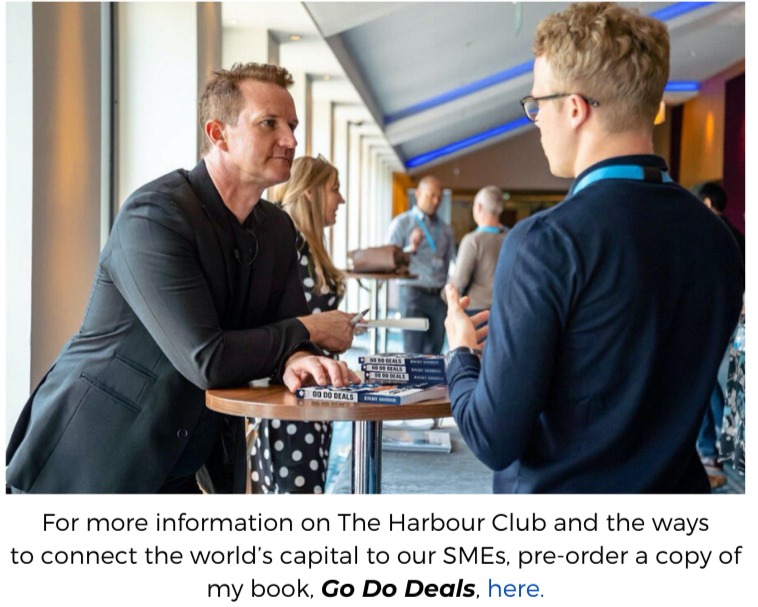You’ve heard kids (and especially teens) say, “That’s not fair!” And many times, the parent’s follow up is, “Well, life isn’t fair, and you need to get used to that.” As harsh as it sounds, it’s true. And it’s certainly no different for entrepreneurs. We work hard, solve problems, and yet we face challenges that other, larger companies don’t. Today, I’d like to discuss inequality and value creation as they apply to small- and medium-sized businesses (SMEs.)
Inequality is a global issue. Its presence is hard not to notice as it is in every political speech, on TV, in films, and especially when you travel. Yet, global living standards have risen exponentially. Don’t believe the media: levels of absolute poverty have been coming down year by year, and globalization has much to do with the elevation of living standards. This is good news!
The real issue isn’t poverty or living standards: the inequality I’m talking about is the uneven distribution of wealth.
Real equality is about equality of opportunity, and we have made leaps forward in this regard. Over the last thirty years, there has been a massive change in wealth and—more importantly—in wealth distribution. Today, there is only one hereditary billionaire in the Sunday Times Rich List top ten, and the majority of billionaires and multimillionaires are self-made in one generation. This is unprecedented.
But this is still only 1% of the 1%. The recent populist movements are driven by a frustration, felt globally, that there seems to be a glass ceiling for most and unlimited riches for others. This frustration gets directed at rich people, immigrants, governments, secret societies, or anyone else people can think of.
Governments seem to come up with variations on the idea of taking money from people who work hard and take risks and giving it to those who don’t. History has shown again and again that this model is not sustainable. There’s got to be a better answer.
Entrepreneurs are Society’s Change Agents

Small business owners working together at warehouse. Man and woman packing the products for delivery.
Nearly every life-changing breakthrough or innovation has been born of the mind of an entrepreneur or has been commercialized by an entrepreneur who has made it work. These people bet everything—their money, their health, their relationships—because they want to change something. When they see an itch that needs to be scratched, they scratch it. When they see a problem that can be solved, they solve it. When they solve these problems, they get paid. That is value, and that value is created by entrepreneurs every day.
Ultimately, though, these problem solvers are not rewarded. Global capital has become detached from value creation. In any mature economy, SMEs represent around 50% of GDP and 95-99% of private-sector employment (depending on where they are located). SMEs are vital to the economy, job creation, tax contribution, and the health of the economy.
I believe we can take control of wealth and investment, and that we can eliminate the bank’s role in controlling the money supply and the government’s role in wealth redistribution. We can also get thousands of new wealthy entrepreneurs solving the world’s biggest problems instead of fighting every day against a system that is completely skewed against them.
Wealth Creation for Entrepreneurs
When you consider all of the money in the world, a huge amount is in investment funds, family wealth funds, insurance companies, pension funds, etc. It is in hot, sandy countries with low tax costs. The world’s money is disconnected from the value in the world. Why does a pension fund or a venture capitalist choose to invest in derivatives (“bets”) rather than in all the value that is created by hardworking entrepreneurs? Some money finds its way into the start-up world, but start-ups are over-glamorized; they are the roulette-wheel of entrepreneurship and 80% or more fail. But start-ups still get all the attention. Companies that have survived start-up are a much better bet: they have a great product, great customers, and real revenues and profits. They have created a brand that people like and trust, so they generate sales and profits. These are the people we need more of. These are the people we need to help. These are the people we need to go and do deals with.
There are three key reasons big money doesn’t follow the value of investing in SMEs:
- Risk – small companies are too risky. They lose a couple of key clients or key staff and have their worst year ever (or maybe their last).
- Scale – I call this the scale paradox: you have to be big to get big. If you are not already a big company, it is hard to win the huge global contracts, and you can’t get big unless you win the big global contracts.
- Liquidity – small companies are illiquid. If you invest, it takes ages to get your money back. Three- to five-year-year plans can easily slip into ten- to fifteen-year plans, and global capital likes to be able to rotate between asset classes as the economic winds change.
The disconnect between value and capital can be addressed. We address it in every Harbour Club course and meeting. And, as I mentioned in my last blog, I believe all the world’s problems can be solved by buying a business. I have very achievable ways to create value and wealth for entrepreneurs, and I will be sharing those methods with you over the next several weeks. As an entrepreneur, it’s your duty to do deals, and it’s my duty to help you do it well.
In my next blog, I will be discussing my first business deal, how I did it with no money down, and all that I learned from that deal. Join me.
Until then, tell me about a hard lesson you’ve learned as an entrepreneur; it’s an opportunity to help someone else learn from you.
Let’s Connect!





